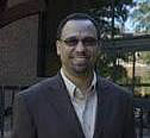Commentary on Matthew 21:33-46
What should proper care of a vineyard look like? What should tenant farmers who lease the land give back to the one who owns all of the land?
Jesus used another parable with another landowner as one of the chief characters (cf. 10:25; 13:27, 52; 20:1, 11; 21:33; 24:43) who cared for another vineyard (cf. 20:1; 21:28) to make his point. Distinctive to this parable was Jesus’ clear allusion to Isaiah’s own parable about a love-song for a planted vineyard (cf. Isaiah 5). In Matthew’s narrative, Jesus tied together broader themes in order to critique the temple leadership responsible for proper care of the people of God, Israel.
This is the third response to the temple leadership’s query about the origins of Jesus’ authority for his temple activity (cf. 21:12-46). First, Jesus offered a counter-question on the authority of John’s baptism, which the leaders failed to answer directly because of their fear of John’s public reputation (cf. 21:23-27). Second, Jesus told a parable about “two sons,” an explanation that directly challenged this leadership’s understanding of God’s activity in the world (cf. 21:28-32). Third, Jesus recalled and re-interpreted Isaiah’s love-song about a vineyard (cf. 21:33-46).
The allusion to Isaiah was unmistakable (cf. Isaiah 5:1-7). The prophet made clear that the vineyard was a metaphor for the “house of Israel and the people of Judah” (cf. Isaiah 5:7). And, in Isaiah, God was the caretaker of this vineyard. Despite careful attention from the vinedresser (cf. Isaiah 5:4), the vineyard produced only “wild grapes.” The vineyard’s failure to produce better fruit forced the owner to remove his attentiveness (cf. Isaiah 5:5-6). If the land was unable to produce with proper care, what would it do without it?
In Jesus’ parable, the “produce” was fine, but the delivery system was malfunctioning. The problem was not with the vineyard’s production but with the tenants themselves. These were extremely violent tenant farmers, harming and slaughtering the various groups of slaves sent by the landowner. The rationale for their brutality and murderous ways was stated explicitly when the son visited: “This is the heir; come, let us kill him and get his inheritance” (21:38).
On the surface, the landowner’s decision to send his son in light of the tragedy of his servants seemed unwise (cf. 21:37). But, Jesus’ parable did not highlight this act as foolish; this was not the parable of the foolish landowner. Rather, in an honor and shame culture, the landowner’s decision to send his son as emissary was appropriate since he could expect proper respect for his appointed heir.
Culturally, the leasing of land to tenant farmers was a common experience in the first century. Landowners could expect tenants to turn over (a portion of) the crop (cf. 21:34). Those who failed to meet the landowner’s standards would be removed from the land and landowning elite could usually pay others to remove them forcefully if necessary.
In reality, many in Jesus’ audience would have understood the experience of the farmers all too well. If they chose not to “pay” the landowner, as was the case in Jesus’ parable, the landowner would find new tenants (cf. 21:41) without doubt. So, Jesus’ story highlighted the landowner’s patience in this regard and, perhaps, a certain kind of naiveté.
In addition to Jesus’ parabolic twist on Isaiah’s vineyard, Jesus provided a citation from Psalm 118. His scriptural citation shifted the focus of the parable altogether, from a critique of the tenants/leadership (in the parable) to a statement about the son/stone (in the scripture citation). The story was no longer about the vineyard, the produce, or the tenant farmers. Now, Jesus turned attention toward the abused son: “they seized him, threw him out of the vineyard, and killed him” (21:39).
For Matthew, this twist was a Christological one in which the abused son became “the stone that the builders rejected” (21:42), which, in turn, determined who was in or out (cf. 21:44). The son who was sent (21:37) must be an allegory for God’s son, Jesus (cf. 3:17; 17:5). The tenant farmers, who represented the temple leadership, would be replaced by other tenants (21:41). And, what looked like a landowner’s naiveté was really God’s plan: “this was the Lord’s doing” (21:42).
In Matthew’s account, the temple leadership realized the parables question their leadership abilities (cf. 21:45), over the vineyard (i.e., Israel, the kingdom of God; cf. 21:43). Yet, their inability to act, despite their anger, was due to the crowds again (cf. 21:46), as it was with their assessment of John’s role (cf. 21:26). In both instances, the leadership’s concern was that the crowd viewed both figures as prophets (cf. 21:26, 46).
One other note on the “landowner” is in order. The term may be translated, preferably, as “household master” (from oikodespotes) and was used a common analogy for God in Jesus’ teaching in Matthew’s Gospel. It may reveal something about Matthew’s ancient setting. The Gospel of Mark never uses the analogy. To the contemporary reader, the analogy may cause concern, since many of these masters owned slaves in Jesus’ parables as in our parable here (e.g., 10:25; 13:27; 21:34; 24:45).
Within Jesus’ parables, household masters generally make wise decisions (e.g., 13:27-30), even if misunderstood (20:11-15). Why is God’s reign often compared to landowning activities? Is it simply Jesus’ theological belief that God “owns” all the land (cf. Deuteronomy 10:14; Psalm 24:1; Job 41:11)?
While this was a parable about the actions of evil tenant farmers, it was also a story about the abused son, especially once Jesus refocused the narrative with the attachment of a passage from Psalm 118.
Proper care and oversight of those people and things entrusted to us should receive fair hearing from this parable. We, too, are like those who wish to receive more credit for our labor, as if we “own” the “land.”
In Jesus’ teaching, there was a fundamental reminder that only the Creator owns everything and we, too, are simply tenants leasing out the talents God has granted to be used for the greater good in the kingdom.


October 5, 2014